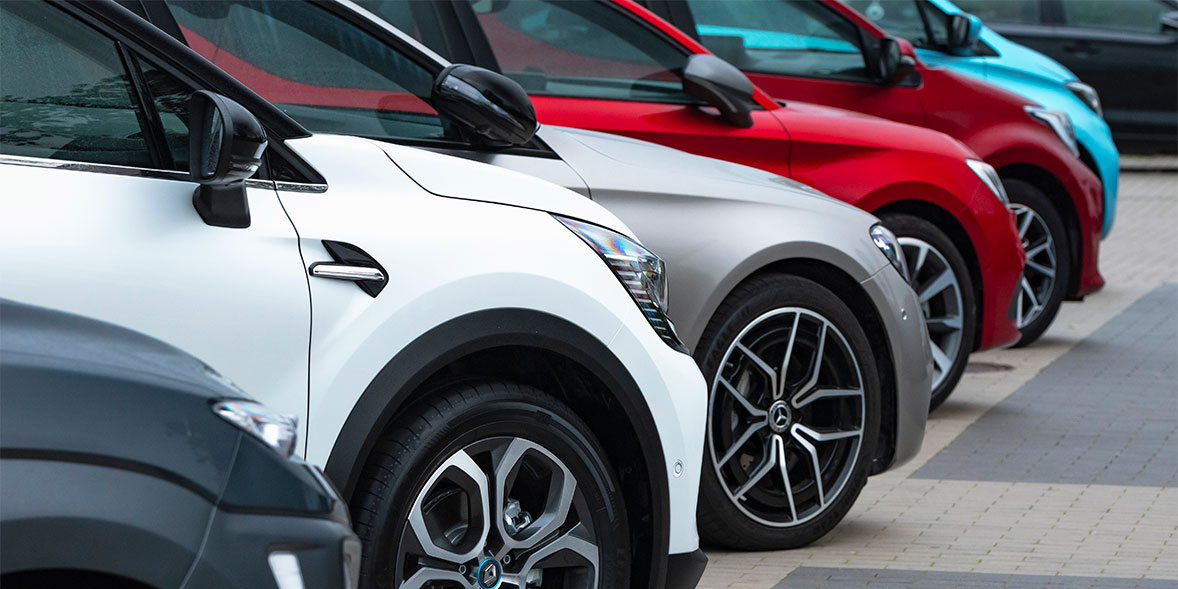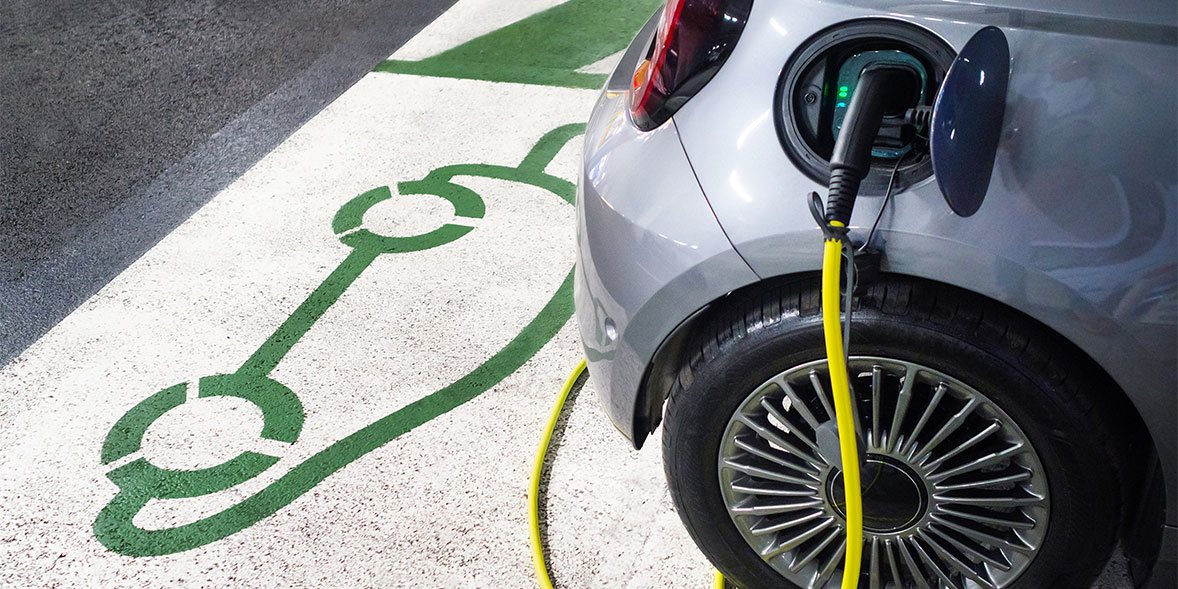By clicking a retailer link you consent to third-party cookies that track your onward journey. If you make a purchase, Which? will receive an affiliate commission, which supports our mission to be the UK's consumer champion.
Best cars for 2024: Which? Best Buys and expert buying advice

Every car we test goes through hundreds of individual lab assessments, so you can trust our reviews. From measuring visibility with 360-degree cameras to the true amount of usable boot space, we leave nothing to chance.
Our mixture of scientific lab-controlled tests, real-world driving and unique survey data of more than 50,000 UK car owners means our new and used car reviews are the most informative and accurate around.
Which car class is right for you?
Click the links below to see which models get a Best Buy rating across each of our car classes. Alternatively, read on to find out which type of car is best for you.
- Best electric cars
- Best hybrid cars
- Best hybrid SUVs
- Best small cars
- Best medium cars
- Best large cars
- Best small SUVs and crossovers
- Best large SUVs and 4x4s
- Best estate cars
- Best MPVs
- Best 7 seater cars
- Best family cars
- Best first cars for new drivers
Drive smarter and cut costs using our expert advice. Get our Cars newsletter – it's free monthly
Best hybrid cars
A hybrid car combines a petrol engine (or more rarely a diesel) with an electric motor and small battery, to help maximise efficiency while lowering CO2 emissions. It does this by recuperating energy that would normally be wasted while braking or decelerating, and using it to assist the petrol engine, reducing overall fuel consumption.
They are typically most effective in urban scenarios, where stop-start driving maximises the potential for energy recovery, and typically low speeds means that most models (excluding 'mild' hybrids) can be driven solely on electricity, though normally only for short distances.
Furthermore, they’re cheaper to buy than a comparable full-electric model and get around the inconvenience of charging times and limited range. From a driver perspective, a full hybrid car is no different to own and operate than a conventional petrol car.
One of the major benefits of hybrid cars is reduced fuel consumption. It’s even more noticeable with PHEVs, which can often complete daily drives on electric alone. We measure real-world fuel consumption in multiple scenarios, so you know how much each car costs to run.
Plug-in hybrid models (PHEVs) offer greater electric driving range (typically around 20-50 miles) thanks to a larger battery. The idea is that you can do most of your day-to-day driving on electricity alone, while having the flexibility of a petrol engine for longer trips. However, to get anywhere near their impressive fuel economy claims, you’ll need to keep the battery topped up as much as possible. Our tests have revealed that once it’s depleted, a PHEV can be less economical than a comparable petrol-only model.
Popular hybrid models include the Toyota Corolla, Honda Jazz, Kia Niro Hybrid, Honda Civic and Toyota RAV4.
See the top-scoring models in our guide to the best hybrid cars or see our pick of the best hybrid SUVs.

Best electric cars
The very best electric cars will offer a serene driving experience, useful driving range and the same functionality and practicality as their petrol and diesel counterparts.
While electric cars are no longer exempt from car tax, with no exhaust emissions you won’t fall foul of the increasing number of low emissions zones cropping up in city centres across the country and abroad.
The traditional drawback to electric cars was their driving range, leading to so-called ‘range anxiety’ among owners. While our independent tests show that – like petrol fuel economy – car manufacturers often fall short of their official claims, the real-world range you can expect to achieve is improving all the time.
Electric cars can be extremely cheap to run, but only if you charge from home. And although many of our highest-scoring EVs are relatively expensive, our tests show that cheaper models can also score well.
One issue you may want to consider is access to charging facilities. Unless you have a private home charger, you’ll be reliant on the public charging network, which can be patchy in its coverage and inconsistent (and expensive) in pricing – something to consider, particularly if you’re drawn to EVs for their potential cost savings. Find out more in our guide to EV charging costs.
If you're concerned about the reliability of EVs, the Which? car survey collates the ownership experience of tens of thousands of owners to find out just how reliable their cars are. The information we collect informs our reviews; if a car is known to break down often or require a lot of costly repairs, it can’t be a Best Buy.
Popular electric models include the Nissan Leaf, Mercedes-Benz EQC, Kia Niro EV, Hyundai Ioniq 5 and Volkswagen ID.4.
See the top-scoring models in our guide to the best electric cars or check out our guide to the cheapest electric cars
Best small cars
The traditional small hatchback remains a firm favourite among UK motorists. It’s not hard to see why – the best models offer decent practicality, including comfortable seating for four, in a package that’s easy to park in a tight spot, with relatively low running and maintenance costs.
Newer models are also normally available with levels of technology and advanced active safety systems that were traditionally reserved for larger and more expensive cars.
Small cars can be deceptively spacious. Some have clever designs that create surprisingly roomy interiors. Our lab tests measure available cabin and boot space across all cars, which often differ from manufacturer claims.
That’s not to say all small cars are equal, though. Some models do without key safety equipment, often rendering them an instant Don’t Buy, while some neglect the driver experience, with sloppy handling or particularly poor performance.
Popular small cars include the Honda Jazz, Skoda Fabia, Vauxhall Corsa, Ford Fiesta, Citroën C3 and Toyota Yaris.
See the top-scoring models in our guide to the best small cars.
Best medium cars
Before the meteoric rise of crossover SUVs, the conventional medium-sized hatchback was the go-to family car. They’re consummate all-rounders that aren’t difficult to drive or park, while also offering long-distance driving comfort and sufficient space and practicality for everyday family life.
Buying a medium-sized car is one of the cheapest ways to get behind the wheel of a new model with a premium badge. But our annual reliability survey shows premium brands aren’t always reliable, so be sure to read our reviews before you buy.
Our lab tests show there's a vast difference between the best and the worst, though. Read our reviews to find a medium-sized car that scores well for fuel economy, interior quality and – critically – passenger safety.
Popular models include the Volkswagen Golf, Vauxhall Astra, Mercedes A-Class, BMW 1 Series and Toyota Corolla.
See the top-scoring models in our guide to the best medium-sized cars.

Best large cars
As you’d expect, interior space in a large car shouldn't be an issue, and sizeable engines mean the extra weight won’t make for sluggish performance.
But although you’d expect all ‘large’ cars to have plenty of passenger and luggage space, our lab tests show not all of them deliver on their promise. Unlike car manufacturers' own space claims, our expert tests measure only truly usable space to help you compare the cars on your shortlist.
While once-popular large models from brands like Ford and Vauxhall are no longer available to buy new, there are still plenty of high-quality large cars from other brands. They also tend to be very well-equipped.
We test to see how well each seat is padded, looking in depth at lumbar, thigh and head support, so you know whether a car will give you backache after a long drive or protect you from whiplash in the event of a rear-end collision.
Popular large cars include the Skoda Octavia, Tesla Model 3, BMW 3 Series and VW Passat.
See the top-scoring models in our guide to the best large cars.
Best small SUVs and crossovers
The best small SUVs have bundles of cabin space. They're also easy to drive and offer a commanding view of the road.
To make sure visibility is good, we use a 360-degree rotating camera to measure exactly how much the driver can see. Huge door pillars and small rear windows can make parking a nightmare. Sensors, cameras and fully automated parking technology are increasingly common, but these extras shouldn’t come at the expense of a well-designed cabin.
Don’t be wooed by some of the low-cost crossovers, because sometimes you really do get what you pay for. We’ve found Don’t Buy small SUVs that are light on in-car tech and safety equipment.
You’ll also need to choose carefully to find a model that offers real practicality benefits over a regular hatchback. We accurately measure everything from head and leg room, through to usable boot space.
Popular small SUVs and crossovers include the BMW X1, Hyundai Kona, Ford Puma, Nissan Juke and Kia Niro.
See the top-scoring models in our guide to the best small SUV and crossover cars.
Best large SUVs and 4x4s
They're typical big and spacious inside, but the interiors of large SUVs and 4x4s vary wildly. When determining the amount of interior space we don’t just get in and stretch our legs. We use dummies to work out exactly how much head, leg and knee space each occupant will have.
Sheer size doesn’t necessarily translate to great usability. Our tests have revealed models that can perform poorly in emergency manoeuvres.
Sometimes the back seats are more cramped than the front, particularly when it comes to coupé SUVs – the sloping roofs can significantly diminish rear headroom. So unless you're planning on rarely using the rear seats, spare a thought for your passengers and read our reviews before you buy.
Popular models in the large SUV class include the Skoda Enyaq, BMW X5, Volvo XC90, Hyundai Tucson and Toyota RAV4.
See the top-scoring models in our guide to the best large SUV and 4x4 cars.
Best estate cars
The best estate cars offer truly cavernous boots. However, some manufacturers remove carpets and include the space designated for a spare tyre when measuring and reporting boot capacity. We use foam blocks to measure space, which give a more realistic figure as they ignore the small nooks that nothing practical can fit into.
Estate cars are all about boot space. We put manufacturer’s claims to the test by only measuring truly useable load space, so you can find an estate that’s really up to the task.
There’s more to consider than just a large boot, though. If an estate car is high off the ground or has a raised loading lip between the boot sill and floor, it may be difficult to load, especially if you’re carting heavy items around.
Popular estates include the VW Golf estate, Skoda Superb estate, Volvo V90 and BMW 5 Series Touring.
See the top-scoring models in our guide to the best estate cars.
Best MPVs
As with other car classes, we check to see how well MPVs cope with an emergency hazard-avoidance manoeuvre. We swerve around objects at up to 56mph to make sure a car remains stable and controllable, even under extreme conditions.
Our testing has found cars that can’t handle sharp turns at high speeds and can skid to the point you’ve effectively lost control of the car, which can lead to serious accidents.
They’re something of a dying breed, but there are still a number of credible new MPVs available across a range of fuel types. The best offer decent boot space with all seats occupied.
Some MPVs have sliding doors that can make it easier to get in and out, particularly in cramped parking spaces. However, we’ve found that some large MPVs have heavy sliding doors that some passengers may find difficult to open and close, or that can slide back on inclines, potentially posing a risk of injury.
Popular people carriers include the Citroën C4 Picasso, Ford S-Max and Volkswagen Touran.
See the top-scoring models in our guide to the best MPVs.
Best 7 seater cars
Lots of seats is all well and good, but if the car is cramped and hard to get into, those extra seats aren’t much use.
The best 7-seaters have a sizeable boot and won't be cramped, even when all the seats are in use. We also check to see how easy it is to enter any car, so you’ll know if the car you’re considering is suitable for older or disabled passengers.
While some 7-seaters will happily accommodate adult passengers in all rows, remaining luggage space can take quite a hit. Others will see even children struggle to fit in. Our recommendations highlight the best all-rounders.
Popular models available with seven seats include the BMW X7, Skoda Kodiaq, VW Touran and Ford S-Max.
See the top-scoring models in our guide to the best 7-seater cars.
We test cars more thoroughly than anyone else
Our tests go further than those carried out by other organisations and, because Which? is independent, you can trust our reviews to give you the full, honest and impartial truth about every car we test.
Every car we review is subjected to more than 300 individual tests in a lab, on a test track and on real roads, allowing us to report accurate miles-per-gallon figures that you can rely on. We also include a motorway test – something that official tests don't cover.
Testing in controlled lab conditions means the results we collect are directly comparable between different cars, helping us determine which models are better and helping you find the perfect vehicle for your needs.
And so you know which models are likely to prove reliable for years to come, we also gather feedback from thousands of UK car owners through the annual Which? car survey and use it to generate detailed reliability ratings for the cars we test.
Read more about how we test cars.
Compare car insurance
Find the right policy for your vehicle using the service provided by Confused.com
Get a quote now